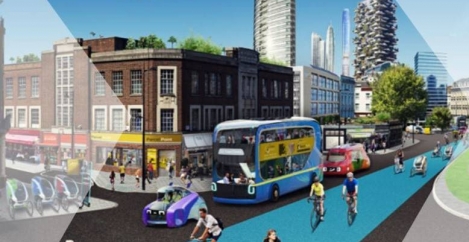March 21, 2019
Government publishes strategy for future mobility in UK cities
 The UK government has published its Future of mobility: urban strategy, which sets out its approach to working with innovators, companies, local authorities and other stakeholders to develop benefits of new urban mobility technologies. Alongside publication of the strategy, it has also launched a £90 million competition for cities to deliver Future of Mobility Zones, which follows £60 million awarded to 10 cities across the UK via the Transforming Cities Fund. It aims to support local leaders and industry to trial new mobility services, modes and models through the creation of up to four future mobility zones.
The UK government has published its Future of mobility: urban strategy, which sets out its approach to working with innovators, companies, local authorities and other stakeholders to develop benefits of new urban mobility technologies. Alongside publication of the strategy, it has also launched a £90 million competition for cities to deliver Future of Mobility Zones, which follows £60 million awarded to 10 cities across the UK via the Transforming Cities Fund. It aims to support local leaders and industry to trial new mobility services, modes and models through the creation of up to four future mobility zones.
The report details the Government’s next steps, which include implementing a flexible regulatory framework that will focus on areas such as micro-mobility vehicles and how they could be trialled, mobility-as-a-service (MaaS), transport data, and modernising bus, taxi and private hire vehicles legislation.
These are in addition to existing regulatory programmes for zero emission vehicles, self-driving vehicles, drones and future fight and maritime autonomy.
Future mobility must be accessible
In the introduction to the strategy, Jesse Norman, Minister of State for Transport, says that radical new technologies are emerging that within a generation will transform everyday journeys. Looking back to the last major transport revolution when the motor car arrived, he said that while life was improved for the majority, “not every change was positive.”
[perfectpullquote align=”right” bordertop=”false” cite=”” link=”” color=”” class=”” size=””]The best transport technologies of the future will not just make journeys faster, they will also make them safer, easier, more comfortable and more affordable[/perfectpullquote]
“This time must be different,” he added. “The best transport technologies of the future will not just make journeys faster, they will also make them safer, easier, more comfortable and more affordable. They will make our towns and cities quieter and less polluted. And they will give us the option to see mobility as a service, integrated and accessible to all.”
The UK government has put the future of mobility at the heart of its modern Industrial Strategy and says it will support businesses, engineers and academics to use their creativity to solve transport challenges.
Underpinning principles of the strategy
The Future of mobility: urban strategy, the government outlines the benefits it wants mobility innovation to deliver, and the principles by which to achieve them, which include:
- new modes of transport and new mobility services must be safe and secure by design
- the benefits of innovation in mobility must be available to all parts of the UK and all segments of society
- walking, cycling and active travel must remain the best options for short urban journeys
- mass transit must remain fundamental to an efficient transport system
- new mobility services must lead the transition to zero emissions
- mobility innovation must help to reduce congestion through more efficient use of limited road space, for example through sharing rides, increasing occupancy or consolidating freight
- the marketplace for mobility must be open to stimulate innovation and give the best deal to consumers
- new mobility services must be designed to operate as part of an integrated transport system combining public, private and multiple modes for transport users
- data from new mobility services must be shared where appropriate to improve choice and the operation of the transport system.














